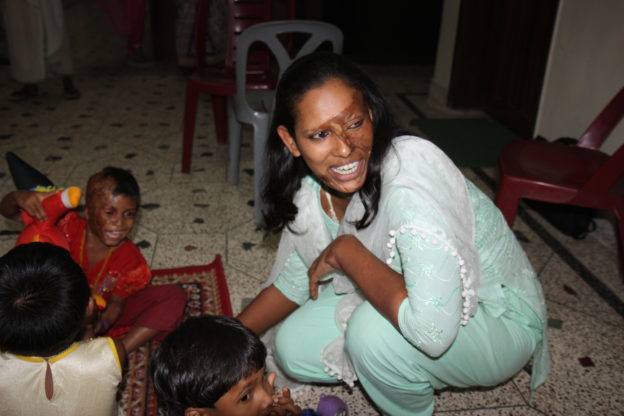At the tender age of 16, the course of a young woman’s life was changed forever: her name is Laxmi Aggarwal, and when she rejected the advances of thirty-two year old Naeem Khan, who had developed a one-sided infatuation with Laxmi, he, his brother Imran, and a friend only known as “Rakhi,” attacked her with acid.
Acid attacks, often called acid throwing, are form of assault that occur in many parts of the world; typically Bangladesh, Pakistan, Cambodia, Nepal, Uganda and India. The latter is what I’m most familiar with, so I’ll concentrate on the problem there.
ASFI, the Acid Survivors Foundation of India, has statistics leading up to 2015.
In that year alone, there were a reported 249 cases of acid attacks in India. That might not sound like a lot—there are, after all, an 1.3 billion residents of this massive country—but in many occasions, victims of these assaults refuse to press charges or go to the police due to fear of more violent retaliation or humiliation at the hands of authorities.
Until an amendment was made in the Indian Penal Code in February, 2013, acid violence was not even recognized as a separate offense by Indian Criminal Law. The significance of unreported cases is that there could be hundreds, possibly thousands of cases that fall through the cracks every single year. It is in fact estimated that there are between 100-500 cases of acid violence every year.
There are now several foundations establishing themselves as safe spots for survivors of these attacks to continue living their lives, but a few years ago, they were mostly cast out of society like pariahs; their attackers, in some cases, still roamed freely because they were perhaps a powerful member of society or belonged to one of the “upper castes” (India still has a number of people who believe in the primordial caste system, but that’s another discussion for another day.)
Now, though, there have been journalists and activists who have taken the cause to heart. One such company that I’ve been following for a number of years is the group Stop Acid Attacks. Run by Alok Dixit, Anurag Dwivedi and Ashish Shukla, this team evolved from a small Facebook group into an entire non-profit organization fighting for women’s rights in India.
A succinct list of demands outlines what this company works towards, ranging from compensation and treatment of those who are attacked and punishment for attackers, along with stricter laws regarding acid violence and regulation of the sale of acid in India.
The non-profit works with victims such as the aforementioned Laxmi, who, through this platform, was able to move forward in both her career and personal life. Laxmi Agarwal is now known to be a TV host and activist for acid attack victims; her story has unfolded both within India and internationally.
Laxmi is the direction of the Chhanv Foundation, another foundation working towards the recovery of survivors, and has received a variety of awards—including the 2014 International Women of Courage award from First Lady Michelle Obama.
Through the foundation, she was able to meet and marry Alok Dixit, and more recently, the couple now has a young daughter by the name of Pihu. She’s also been active in political circles; it was with Laxmi’s determination that a petition demanding that central and state governments regulate the sale of acid reached the Indian Supreme Court, and Parliament made prosecutions of acid attacks easier to pursue.
In more recent years, one of the biggest successes of the company Stop Acid Attacks has been the creation of Sheroes Hangout—a crowdfunded café that opened in Agra, staffed solely by survivors of acid attacks.
The café aims to normalize the lives of these women and give them their confidence back, something that can be irrevocably lost after disfigurement at the hands of acid. The Stop Acid Attacks Team is able to provide training to each survivor in the subjects that they have interest in learning; according to the website, it also houses a library, community radio hub and a boutique showcasing work created by a survivor.
Through this company, acid attack survivors are able to earn wages and recuperate from their horrific experiences; the company assures us that several survivors no longer hide their faces out of shame and are able to normalize themselves once more.
They smile proudly and confidently, and one line stands out most of all: “the acid thrown on them shattered their lives, but they refuse to break.”








